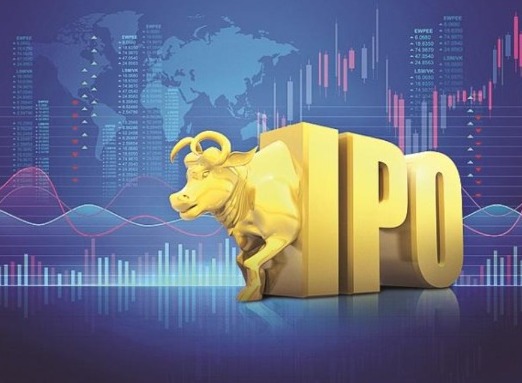“2021 could be India’s year of IPOs” was a statement made by the Reserve Bank of India due to the vast number of companies submitting their IPO papers to the Securities Exchange Board of India (SEBI). This has turned out to be true with over 70 IPOs hitting the stock market in a duration of just 9 months. Participating in these IPOs has become a financial trend for millennials as most of them are trying their hand at it. Even people who are not very familiar with the Indian stock market want to seize this opportunity and take the plunge. Keeping its trendy aspect aside, IPOs are often considered to be risky as they deliver inconsistent returns over the longer term. For instance, one of the risks is no guarantee of getting the shares. However, it all depends on the subscription. (There are numerous variables that determine the profitability and external factors may affect it.)
Currently, many high profile companies are making headlines through their IPO announcements but what exactly is an IPO?
Initial public offering, or IPO, is the process through which a private corporation offers shares to the public by the issuance of new stock. Before an IPO, the only investors in the corporation are the founders , family, venture capitalists and angel investors. Public investors can invest capital only through IPOs. This is the process by which a company transitions from private to public. Through this, the general public is able to buy shares and own a portion of the company. These shares can be traded in the open market. This procedure is colloquially known as ‘going public’.
Why do the companies go public?
It is obvious that to grow their business, all corporations and firms would want to bring in as much capital in the form of investment as possible. The main purpose of an IPO is to raise capital for the company. While there exist various other ways to generate capital, like taking a loan, raising money via venture capitalists and private investors, these are a bit expensive. Hence, many corporations opt for IPOs. The existing investors can sell some or all of their shares too, through the IPO procedure. This way, early investors can cash out their investments. The extra capital raised is often used to expand the business; buy more property, work on research and development or even pay off debt. Usually companies that have acquired the revered ‘unicorn status’ – those valued at $ 1 billion – go for IPOs. From a marketing point of view, IPOs are a great way for publicity since it attracts more customers to the company.
How do companies go public and how can the public invest?
Companies hire Investment Banks or regular banks to manage the procedure of IPO. Before going public, companies have to meet a set of regulatory requirements outlined by India’s market regulator, SEBI. Companies need to submit a Draft Red Herring Prospectus (DRHP) which is a document for registration prepared by the bankers. This explains the reason behind raising funds from the public and how those funds will be utilised by the company. This document is reviewed by SEBI and is either accepted or revised.
Following this, the company begins to advertise its interest in going public. (In India, many such companies created a lot of hype before the announcement of their IPO dates which led to their huge successes.) The price band announcement takes place shortly after. Once the IPO process has been initiated, a company’s shares first start trading on the grey market – the unofficial market for unlisted shares – till they are listed on the bourses. Only dealers are allowed to deal in them. The premium is estimated here. Using the grey market premium, the listing price is estimated. There are 3 days for subscribing to the IPO. The allotment details are out after 4-5 days. If not allotted, the money is refunded. The IPO listing date is generally after 2-3 days. From this date, retail investors can invest in the company and the trading show begins!
Why the sudden rush for IPOs in India?
Due to the bullish inclination of the stock market, a whopping $9.7 billion were raised through IPOs only in a span of 9 months. This is the highest amount ever witnessed in about 2 decades.
Financially, there have been numerous after-effects of the Covid-19 Pandemic, some of them being positive and setting new trends. Impressive activity has been observed with the Indian stock market as well. Even as the pandemic continues to ravage the country’s economy, the same was not reflected in the stock market. In fact, the benchmark indices have been observed to perform better than ever. Additionally, there are a lot of first time investors investing in the stock market. This is the reason why more and more corporations have decided to go public since the end of 2020.
A total of 72 IPOs hit the stock market in a span of 9 months. The markets are majorly witnessing a boom in tech start-ups. SEBI has since made it more appealing for them to list shares in the domestic indices. This is also partly because of the Chinese government’s regulatory crackdown on its technology companies. Earlier, when foreign investors wanted to invest capital, 90% used to go to China because of the country’s tremendous rate of growth. Today, 80% come to India. India ranks 11th by IPO proceeds globally.
The most hyped IPOs of 2021 in India include Zomato, Paytm, Nykaa, Nazara Technologies, MTAR tech, Nureca and many more. Most of these have made the investors rich by a huge amount.
Food delivery company Zomato raised Rs. 9,375 crore in the July- September quarter which was the highest. It showed stellar performance by being oversubscribed 38 times. This was followed by Nuvoco Vistas Corporation which raised Rs. 5,000 crore. Other IPOs are Chemplast Sanmar (Rs 3,850 crore), CarTrade Tech (Rs 2,998.5 crore), and Aptus Value Housing Finance (Rs 2,780 crore). Rakesh Jhunjhunwala backed Nazara Technologies is the first gaming company that has been listed in stock exchanges and it raised Rs 583 crore.
Globally too, most of the companies that went public this year were tech companies and healthcare companies.
One of the most awaited IPOs will be launched this month: the Paytm IPO. Digital payment firm Paytm’s initial public offering of up to Rs. 18,300 crore is expected to be the country’s largest stock market listing. For reference, the record for the biggest IPO is currently held by Coal India which was a decade ago in 2010. Coal India had raised Rs. 15,199 crore.
With the number of companies still releasing their IPOs, it looks like the 2017 record of $11.8 billion will easily be surpassed. Up until the October of 2021, $10.8 billion has already been raised. This has opened up paths for maintaining the domestic economy. Technology companies have led the rally by raising about Rs 15,000 crore through IPO in the last 18 months. Even though the IPO wave still continues in India, experts have advised investors to evaluate the companies on their own before investing. Factors such as business growth, profitability, market share, etc. must be considered before making a decision as the risk level varies with different firms and companies.
Source: Cartoonstock
Author: Akrithi Ullal (TYBSc.)
Editor: Aditi Prakash
References:
- Bhattacharya, P. (2021, October 25). Explained in 8 charts: India’s record IPO boom in 2021. The Times of India.
- Das, K. (2021, July 13). Decoded: Why so many companies are going public in 2021. India Today.
- Agarwal, R. (2021, October 12). 5 Best IPOs Of 2021 That Have Made Investors’ Richer By A Huge Quantum. Good returns.
- India accounts for nearly 3% of global IPO proceeds worth $330.6 bn in Jan-Sep. (2021, October 10). The Economic Times.
- Ashford, K., Schmidt, J., (2021, August 2021). What Is An IPO?. Forbes Advisor.
https://www.forbes.com/advisor/investing/initial-public-offering-what-is-an-ipo/
- Fernando, J. (2021, October 19). Initial Public Offering. Investopedia.
https://www.investopedia.com/terms/i/ipo.asp
Picture References:
- https://timesofindia.indiatimes.com/business/markets/ipo/in-charts-indias-booming-ipo-market-accounts-for-nearly-3-globally/articleshow/87259649.cms
- https://www.cartoonstock.com/cartoon?searchID=CS166260


Very well explained
LikeLike